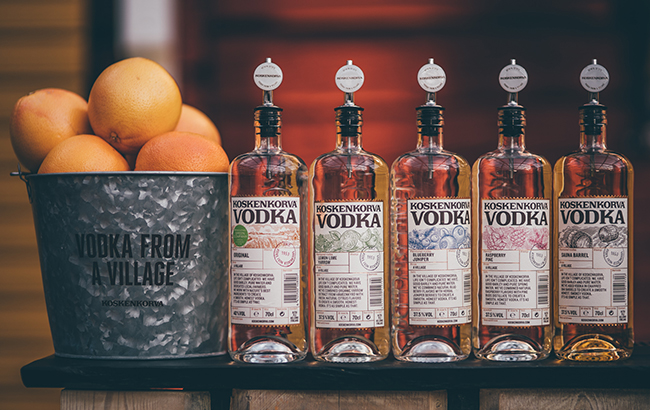This website uses cookies so that we can provide you with the best user experience possible. Cookie information is stored in your browser and performs functions such as recognising you when you return to our website and helping our team to understand which sections of the website you find most interesting and useful.
Anora aims for carbon-neutral production
Koskenkorva Vodka owner Anora Group is re-evaluating its sustainability strategy to achieve its green goals, which include achieving carbon-neutral production.

Anora Group was formed in September last year following the merger of Altia and Arcus.
The company said it will publish a new sustainability roadmap this year.
Pekka Tennilä, CEO of Anora, said: “2021 was a historic year for us with the start of Anora’s journey as the leading wine and spirits brand house in the Nordics. During spring 2022, we will be forming a new sustainability strategy with ambitious goals to drive us even further towards our vision of becoming a global industry forerunner in sustainability.”
Anora will aim to reduce its carbon dioxide emissions from primary production as one of its climate goals, working to reach carbon-neutral production through regenerative farming.
The company has been working with the Baltic Sea Action Group and local farmers to promote regenerative farming practices, which aims to turn fields from emission sources into carbon sinks.
In 2021, Anora’s Koskenkorva distillery created its second batch of grain spirit made from regeneratively grown barley, which was used to make Koskenkorva Climate Action.
Furthermore, the distillery’s bioenergy plant achieved a record-high, self-sufficiency rate of 68.8% in 2021. Carbon dioxide emissions at the site have been cut by 58% since 2014.
Plus, Anora’s recycling and recovery rate at its Koskenkorva, Gjelleråsen, Rajamäki, Tabasalu and Cognac production plants was 99.5% at the end of last year.
‘Climate-smart packaging’
Anora is also keen to pursue more ‘climate-smart packaging’ options, inspired by its wine bottle made from 100% recycled PET plastic. The bottles have a 90% lower carbon-dioxide footprint compared with glass.
Plus, at the Gjelleråsen plant in Norway, bottle capsules were changed to one plastic capsule type for all formats. This enabled more efficient production, and ensured all bottles on the PET line were suitable for the Nordic deposit scheme.
Anora is also looking at ways to actively promote a safety culture at each production site.
Last year, no injuries were reported at the Gjelleråsen plant, while Koskenkorva distillery was granted The Year Award in Starch Europe’s Safety Programme.
Tennilä added: “Overall, I am very proud of our sustainability achievements in 2021 and look forward to raising the bar even higher in 2022. With thanks to the ambitious sustainability work of our predecessors, Altia and Arcus, we have a strong foundation on which to build our future efforts.”

